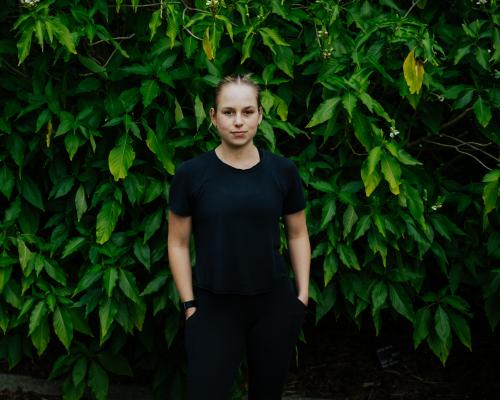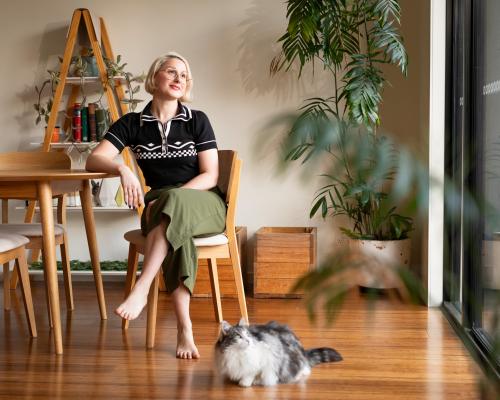
Happy Saturday! Pro-Palestine protesters marched across the Sydney Harbour Bridge nearly a week ago. It was a moment in history – the torrential rain and enormous crowd numbers – and our reporters covered it brilliantly and sensitively. Just like today’s first read. With that, let’s get on.
1. The killing code
A cipher hidden in a colonial settler’s diaries from the 1850s has confirmed a confronting chapter of Australia’s colonial past. It’s in this impressive and compelling interactive from Guardian Australia – where our journalists and historians decode the truth of a dark history that Yamatji people already know all too well.
The killing code: In his journals, Major Logue used a modified form of masonic code known as “pigpen” to hide the killings of Aboriginal people. In part one of this series, readers can toggle the code to reveal the hidden atrocities he wrote of while he lived in Geraldton, Western Australia.
‘Colonial silence’: Now, the descendants of the victims of the massacres, and the descendants of the perpetrators of colonial violence, want to break the shame and silence.
2. Materialist girl: Celine Song
For a short time, before she became an Oscar-nominated writer-director, Celine Song worked as a matchmaker. Her clients would tell her things “they would never admit to their therapist”, but were painstakingly alike in their requests: tall, rich, great body and hair.
Song wanted to make a film about the experience but realised the clients were boring. The most interesting part about the modern dating world, for her, was actually class and wealth.
Past Lives: Song’s debut film about loves lost and rekindled, also inspired by the director’s love life, is a must-see (the Guardian’s Peter Bradshaw gave it five stars).
How long will it take to read: four minutes.
3. When the expert becomes the patient
When a cycling accident involving a lorry crushed Jim Ashworth-Beaumont’s lungs and liver, and left him without a right arm, he thought he was going to die. When he survived the unimaginable, he became part of a radical trial for amputees. It just so happened that he was also an experienced clinician in prosthetics, making him the perfect guinea pig.
***
“You couldn’t have made up a better candidate, but I wasn’t going to tell him until I knew he would survive.” – Edmund Fitzgerald O’Connor, plastic surgeon.
How long will it take to read: nine minutes.
4. A tech CEO’s take on the future of AI
If Demis Hassabis had his way, AI would have been “left in the lab for longer”. As chief executive of Google’s AI DeepMind, his team would have “done more things like AlphaFold” – the AI tool predicting protein’s 3D structure – or “maybe cured cancer”, he tells Steve Rose.
Instead, the world is already getting a feel for AI. And while the unknowns remain large and ever gloomy, Hassabis is “cautiously optimistic” that we can achieve radical abundance.
What is ‘radical abundance’? Hassabis believes the more productive AI can be to society, the more society can prosper. “Of course, we’ve got to make sure it gets distributed fairly, but that’s more of a political question,” he says.
How long will it take to read: five and a half minutes.
5. Stuck on Sydney Sweeney
This one is for all the readers rubbing their heads as to why they saw a blond bombshell grace our front page more than once this week. Adrian Horton is on the case, as she expertly explains how the 27-year-old US actor Sydney Sweeney has started a culture war over recent viral ads.
Hollywood up-and-comer: it involves jeans, boobs, voting Republican and money. Enjoy!
How long will it take to read: three and a half minutes.
Further reading: and then you must read Marina Hyde’s take on the controversy – she thinks it’s a showbiz masterclass.
Sign up
Enjoying the Five Great Reads email? Then you’ll love our weekly culture and lifestyle newsletter, Saved for Later. Sign up here to catch up on the fun stuff with our rundown of must-reads, pop culture, trends and tips for the weekend.
And check out the full list of our local and international newsletters.






